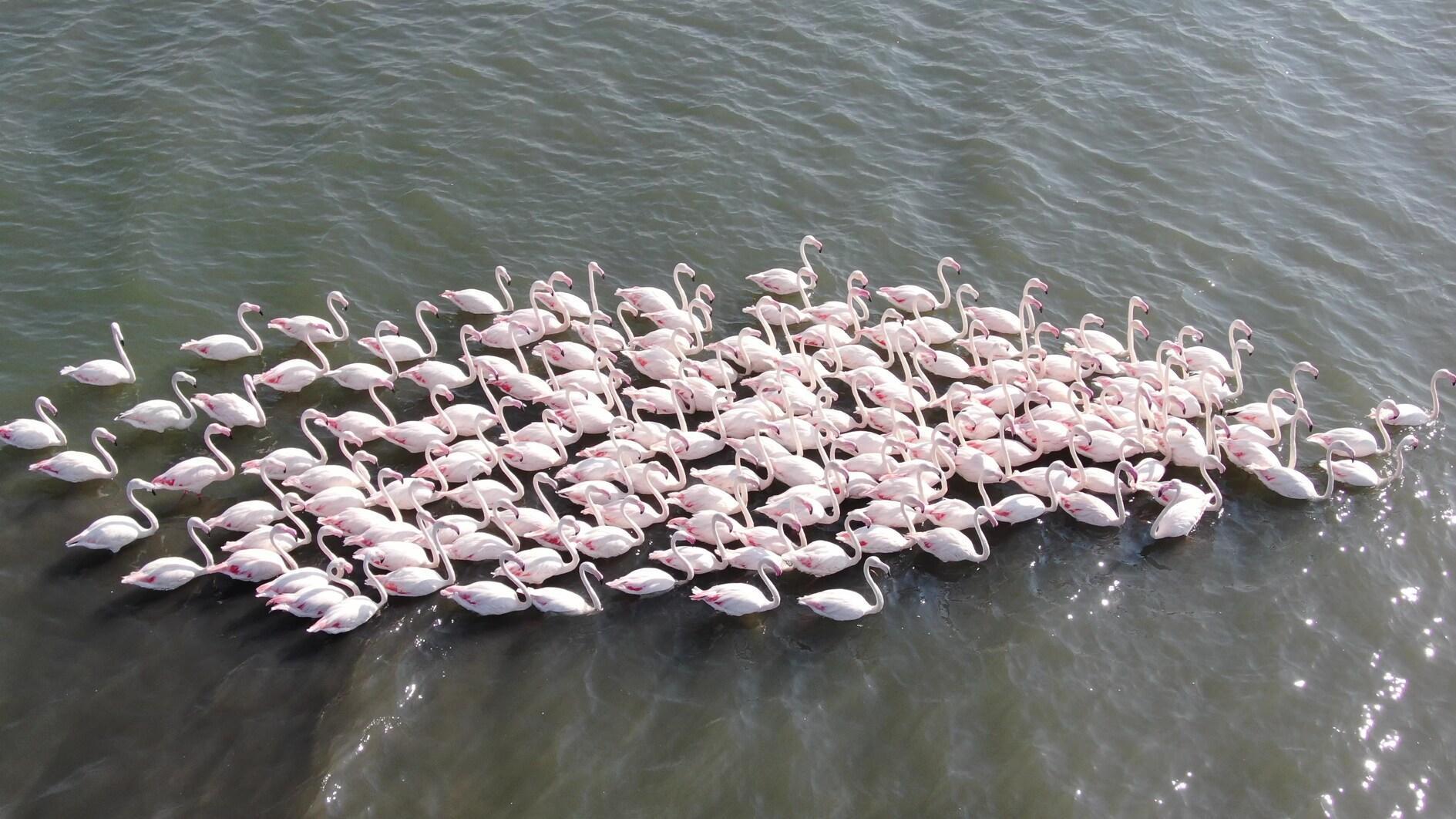Flamingos boost ecotourism in Gulf of İzmit
KOCAELİ

The Gulf of İzmit in the northwestern province of Kocaeli has become a haven for flamingos, thanks to rigorous cleaning efforts that have created abundant nutritional sources for wading birds and revealed the region's ecotourism potential.
Nesting in the wetland there during specific times each year, these flamingos offer mesmerizing views to both birdwatchers and scores of nature enthusiasts, astounding them with their dazzling array.
Similarly, the gulf has also been home to a wide variety of other bird species, enhancing the region's ecological vitality.
This aligns with the large-scale initiatives undertaken by local authorities. The Kocaeli municipality has conducted fish restocking and sediment cleaning efforts in the region, while also supporting the establishment of advanced biological treatment facilities.
“Flamingos flock to the Gulf of İzmit’s wetland to recuperate especially during this time of the year. This is crucial for Kocaeli's ecotourism development,” said Önder Alioğlu, the head of a local wildlife park.
These flamingos not only captivate onlookers with their beauty but also contribute to the studies of nature photographers and bird watchers, Alioğlu noted.
Emphasizing Kocaeli's significance as a bird migration route, Alioğlu noted that black storks are currently migrating through the region.
“Our citizens are participating in the events we carry out to track and analyze this bird migration. We are still working on banding investigations and tracking every bird along the Kocaeli border.”
He, therefore, called on everyone to pay a visit to the gulf, which offers the opportunity to observe a variety of bird species, highlighting that visitors can easily access the region.
Lake Tuz, the second-largest lake in Türkiye, also typically hosts thousands of flamingos during the spring and summer months for nesting before they migrate to warmer countries toward the autumn months.
However, the drought, caused by insufficient rainfall and excessive groundwater extraction, has depleted the lake’s water levels, making it difficult for flamingos to find food and water.
As dedicated efforts persist to sustain the country's flamingo population, the new water system at Lake Tuz has effectively prevented mass flamingo deaths this year, which were previously caused by water and food shortages.
The system managed this by providing water to the hatching area, known as "kindergarten," via a 4-kilometer pipeline utilizing solar-powered motor pumps.
Recognized as a symbol of spring in Anatolia, flamingos — locally called "allı turna" — continue to bring joy to locals as they grace the skies of the country, thanks to these dedicated efforts.
















